Julian Assange: Sweden considers reviving rape inquiry
- Published
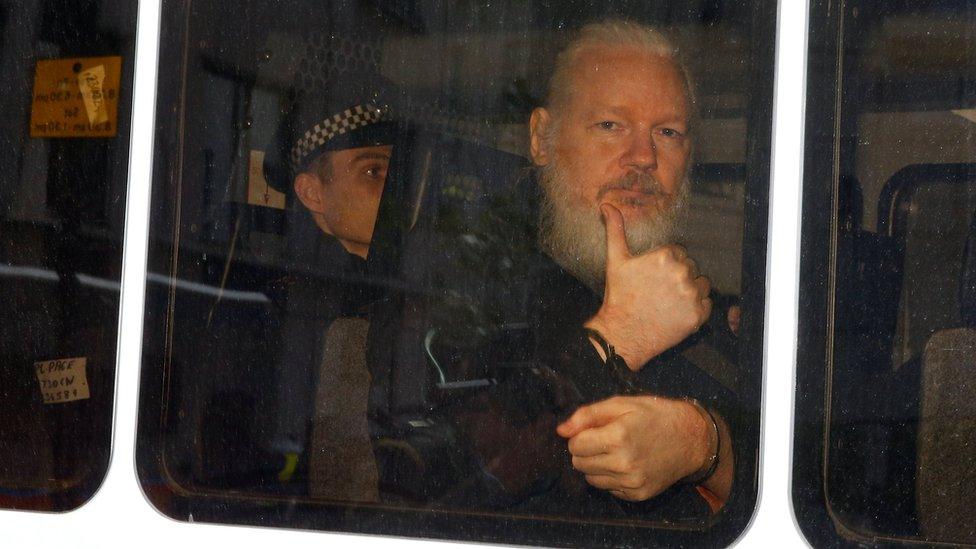
Assange was found guilty of a British charge, but he could be extradited to the US to face a separate charge
Wikileaks co-founder Julian Assange could face a renewed investigation into an allegation of rape in Sweden.
Assange, 47, who had been granted asylum in Ecuador's London embassy for seven years, was arrested on Thursday.
Swedish prosecutors said they were examining the case at the request of the alleged victim's lawyer.
The US also wants to extradite him from the UK over his alleged role in one of the largest ever leaks of government secrets in 2010.
Australian-born Assange faces a charge of conspiracy to commit computer intrusion in the US, external for his alleged role in one of the largest ever leaks of government secrets in 2010, which could result in a prison term of up to five years.
Lawyer Elizabeth Massi Fritz said she would do "everything we possibly can" to get the investigation reopened in Sweden.
Assange sought refuge in the Knightsbridge embassy in 2012 to avoid extradition to Sweden over allegations of sexual assault. But Ecuador abruptly withdrew its asylum and invited the police to arrest him on Thursday.
After his dramatic arrest, he was taken to Westminster Magistrates' Court and found guilty of a British charge of breaching bail. He spent Thursday night in custody and is facing up to 12 months in prison for that conviction.
The United Nations has called for his right to a fair trial to be respected during any extradition process.
Julian Assange being dragged from the Ecuadorean embassy in London
What is the Swedish investigation about?
Assange was accused of rape and other sexual offences, against two women, following a Wikileaks conference in Stockholm in 2010. He has always denied the allegations, saying the sex was consensual.
Swedish prosecutors dropped the rape investigation in 2017 because they were unable to proceed while he remained in the Ecuadorean embassy.
Assange also faced investigation for molestation and unlawful coercion, but these cases were dropped in 2015 because time had run out.
Prosecutors will now re-examine the rape case to decide whether to resume it before the statute of limitations runs out in August 2020.
Ms Massi Fritz, lawyer for the alleged victim, said the arrest came as a shock, external but "what we have been waiting and hoping for since 2012 has now finally happened".
She said: "No rape victim should have to wait nine years to see justice be served."
What does the US want with Assange?
Assange is due to face a hearing over his possible extradition to the US on 2 May.
The US Department of Justice has accused him of conspiring with former intelligence analyst Chelsea Manning to commit "one of the largest compromises of classified information in the history of the United States".
Manning was arrested in 2010 for disclosing more than 700,000 confidential documents, including a video of US soldiers killing civilians from a helicopter in Iraq. She was recently jailed for a second time for refusing to testify in an investigation into Wikileaks.
Assange's lawyer Jennifer Robinson said they would be fighting the extradition request. She said it set a "dangerous precedent" for journalists publishing information about the US.
Does Trump still love Wikileaks... or what?
Jonathan Turley, a law professor at George Washington University, said the charges had been crafted to avoid free speech concerns by accusing Assange of participating in the theft of information. But he said the indictment was "thin on evidence".
During a briefing at the White House following Assange's arrest, US President Donald Trump was asked by reporters if he stood by his election campaign remark that he loved Wikileaks, which released damaging information on his opponent Hillary Clinton.
"I know nothing about Wikileaks," said Mr Trump. "It's not my thing."
How has the UK reacted?
With Assange facing extradition proceedings and up to five years in federal prison on the US computer hacking charge, shadow home secretary Diane Abbott told BBC Radio 4's Today programme that the UK should resist handing him over.
She said: "This is all about Wikileaks and all of that embarrassing information about the activities of the American military and security services that was made public."
Initially Ms Abbott dismissed the Swedish allegations, saying three times that Assange was never charged, but she later said he should face the criminal justice system if the Swedish government does charge him.
Labour leader Jeremy Corbyn also said the UK should oppose Assange's extradition, "for exposing evidence of atrocities in Iraq and Afghanistan".
The BBC's diplomatic correspondent James Landale said backing Assange is not without political risk and will not find universal favour among Labour MPs - but it means "the battle over Assange's future will now be as much political as it is legal".
Prime Minister Theresa May welcomed the arrest, saying it showed that "in the UK, no one is above the law".
How does the extradition process work?
Lawyer Rebecca Niblock said the extradition decision lies primarily with the courts and that only a judge can decide whether an extradition breaches an individual's human rights.
The home secretary can consider a limited number of issues when deciding whether or not to order an extradition, including whether the person is at risk of the death penalty.
However, if Sweden also made an extradition request, Ms Niblock said it would be for the home secretary to decide which request would take precedence, considering factors such as the seriousness of the offence and which request was made first.
Nick Vamos, former head of extradition at the Crown Prosecution Service, said the UK proceedings should not take more than 18 months.
Considering Assange's potential objections to extradition, Mr Vamos said that he did not think courts would accept the US case was politically motivated.
But he said Assange may be able to argue that his likely treatment in the US prison system would breach his human rights and that could not receive a fair trial due to his notoriety and links to political scandals.
- Published12 April 2019
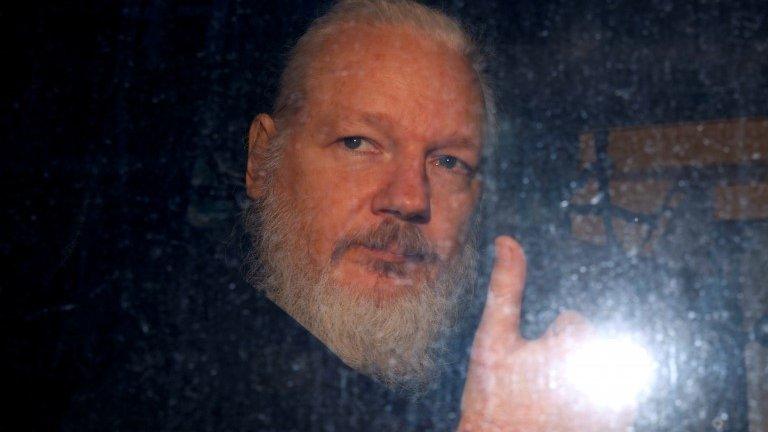
- Published12 April 2019
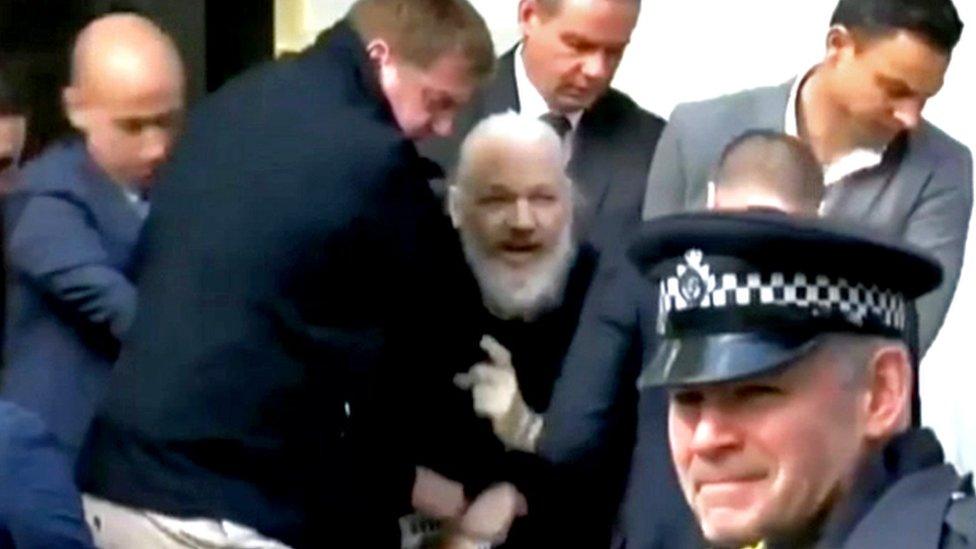
- Published11 April 2019
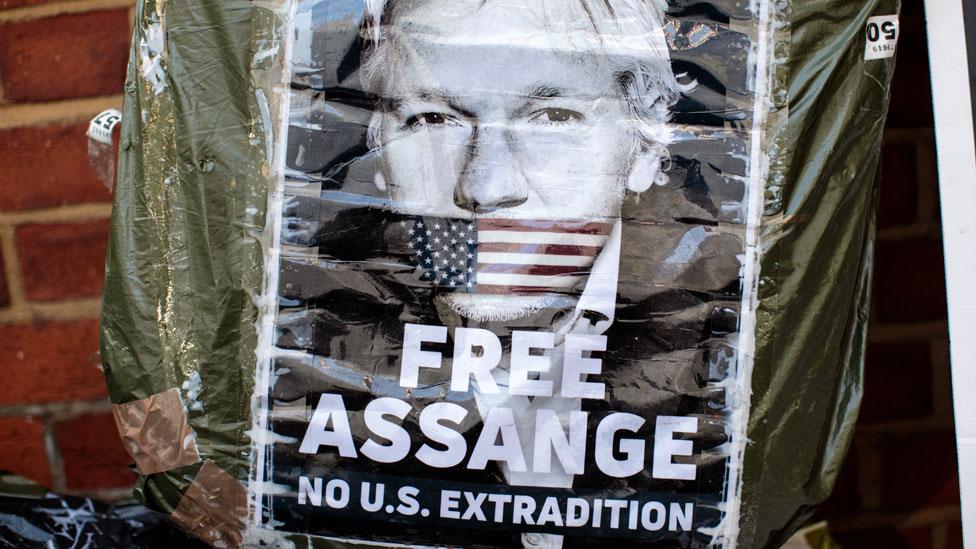
- Published30 October 2018
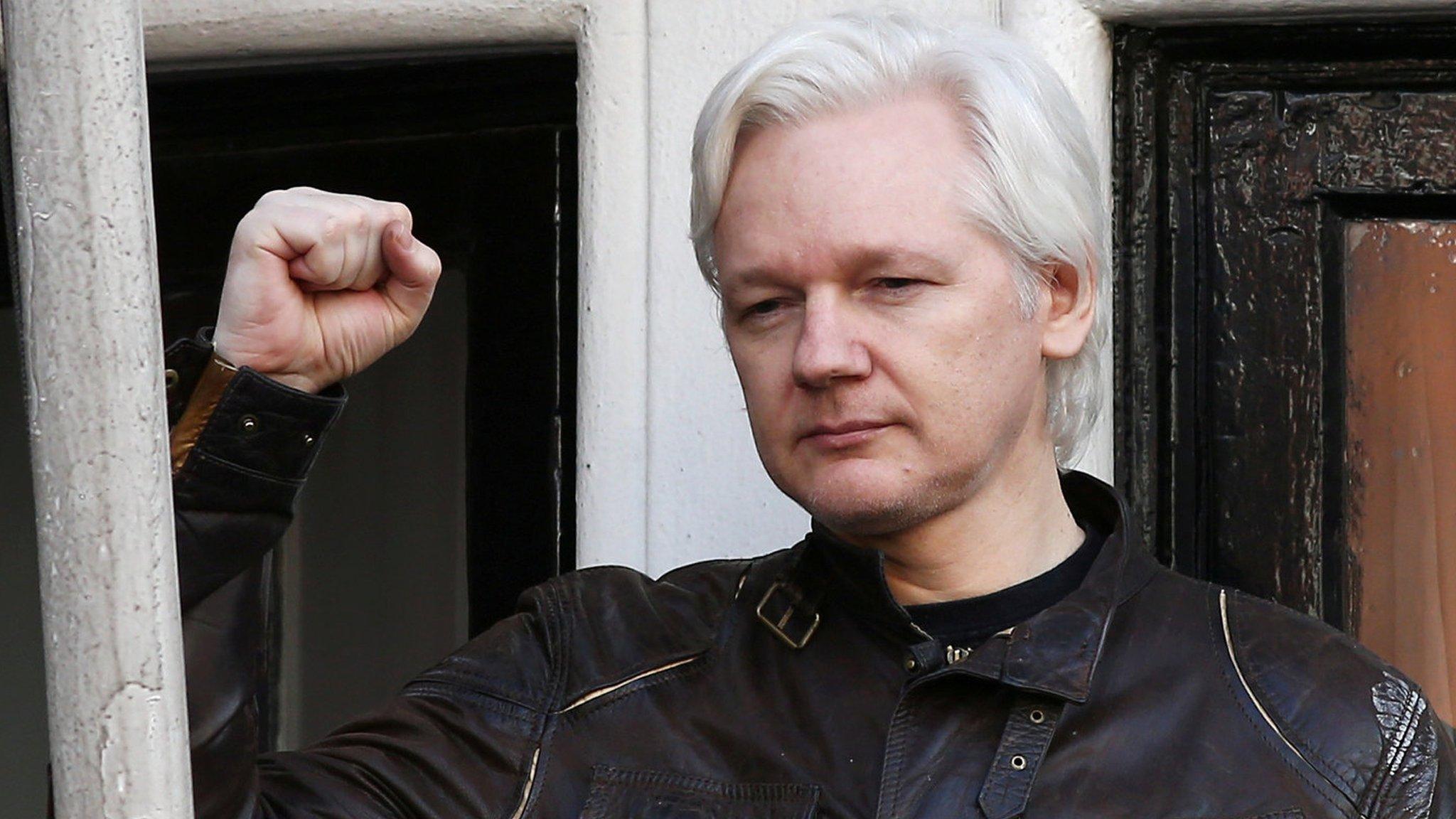
- Published25 June 2024

- Published11 April 2019
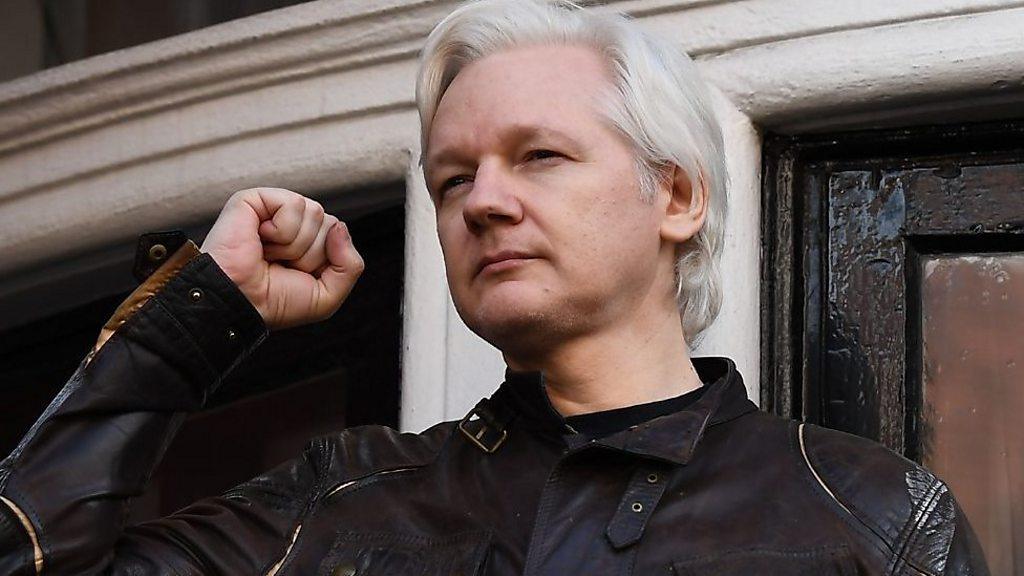
- Published26 June 2024
